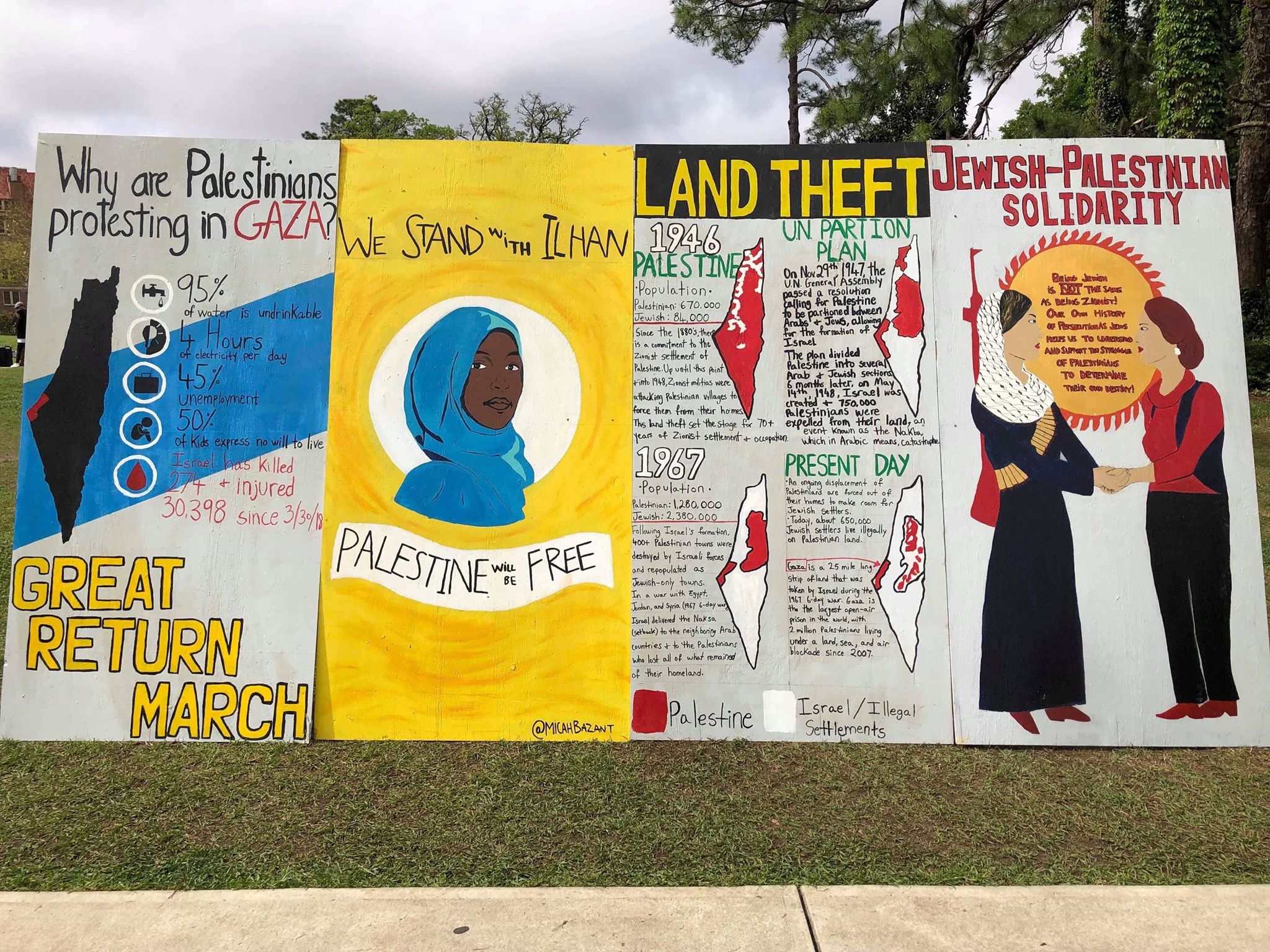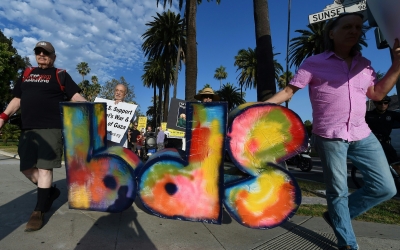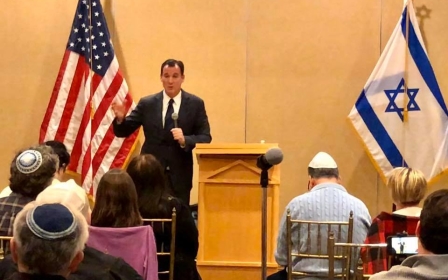'Hilariously unconstitutional': Rights groups file lawsuit against Georgia's anti-BDS bill

Two American civil rights groups have filed a lawsuit against a public university in Georgia for cancelling a speaker's event who refused to sign an anti-boycott oath.
The Council on American-Islamic Relations and the Partnership for Civil Justice Fund filed the lawsuit on Monday on behalf of journalist Abby Martin.
Martin was scheduled to speak at Georgia Southern University on 28 February for a talk on media literacy. However, once slated to speak, she was sent a contract by the university which contained a mandatory oath that she would not boycott Israel.
The journalist, who has been advocating for the rights of Palestinians and uncovering human rights abuses at the hands of the Israeli government, refused to sign the contract.
As a result, the school cancelled her appearance at the event.
New MEE newsletter: Jerusalem Dispatch
Sign up to get the latest insights and analysis on Israel-Palestine, alongside Turkey Unpacked and other MEE newsletters
"My right to speak at a media conference at a public university was conditioned on my pledge to never participate in my constitutional right to engage in peaceful political action," Martin said at a news conference in Georgia.
"Situations of oppression, racism, and violations of international law that are funded by my tax dollars is something that I care very deeply about."
Martin previously worked at RT America before launching her own investigative documentary series called The Empire Files. She recently released a film called "The Empire Files: Gaza Fights for Freedom", which highlights human rights violations Israel has committed in the Gaza Strip.
She said she should not be expected to throw away her moral values to work in the state of Georgia.
A myriad of individuals and organisations across the United States have signed onto the Boycott, Divestment and Sanctions (BDS) movement. Founded in 2005, the Palestinian-led movement seeks to pressure Israel to end its abuses against Palestinians through economic boycotts and other non-violent means.
The anti-boycott legislation in Georgia was signed into law in 2016 and mandates that within any contract valued at $1,000 or more with the state, a pledge to not boycott Israel needs to be added.
The state is among more than 25 others across the US that have passed similar measures banning any public boycott of Israel.
"This law is blatantly and hilariously unconstitutional," Edward Mitchell, executive director of CAIR-Georgia, said at the news conference.
'Protected political expression'
Rights groups have argued that these anti-BDS bills are at odds with free speech rights protected under the First Amendment of the Constitution, which in US jurisprudence allows people to participate in various forms of boycotts as an act of political protest.
"Boycotts are fundamentally a protected free speech right," said Mara Verheyden-Hilliard, director of the Partnership for Civil Justice Fund.
Verheyden-Hilliard and Gadeir Abbas, CAIR's senior litigation attorney, outlined examples of boycotts used by Martin Luther King Jr. against the Jim Crow laws in the American South, and by activists in the US working to end apartheid in South Africa as examples of how boycotts are protected free speech.
'Boycotts are fundamentally a protected free speech right'
- Mara Verheyden-Hilliard, director of the Partnership for Civil Justice Fund
"The Supreme Court eventually recognized that political boycotts are protected political expression and no state has the right [to] tell people what they can or cannot say," Verheyden-Hilliard said, referencing the boycotts used during the civil rights movement in the US.
CAIR-Georgia is currently working on repealing this legislation in the Georgia state legislature.
In the US House of Representatives, an anti-BDS measure was introduced and nearly 60 politicians, including one Democrat from New York, signed onto it.
The Senate passed a different anti-BDS bill in February 2019, but it has yet to receive a vote in the House.
Every senator currently running for the Democratic presidential nomination voted against the legislation, except Minnesota Senator Amy Klobuchar.
Middle East Eye delivers independent and unrivalled coverage and analysis of the Middle East, North Africa and beyond. To learn more about republishing this content and the associated fees, please fill out this form. More about MEE can be found here.





